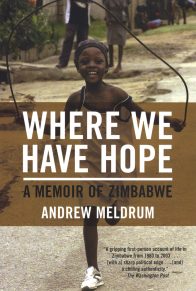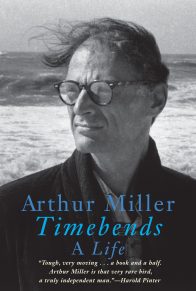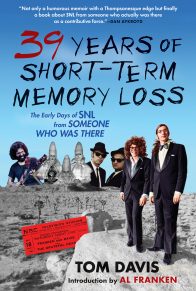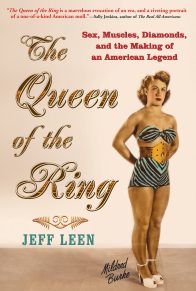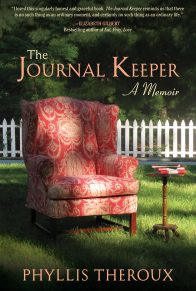Some years ago Tom Powers, an American publisher who is also a writer and historian, kindly told me I ought to write a book about my fifty years in publishing. He added: `Put in all the figures – that is what one wants to know.’ With those well-intentioned words he nearly finished off this book before it was begun.
Partly – as I shall explain – from conditioning, and more – I am pretty sure – because of some kind of mental kink, I cannot remember figures. When I recall the various houses I have lived in in London I can see the colours of their front doors, the way the steps leading to those doors were worn, what kind of railings guarded their areas; but not one of their numbers can I remember. My bank account has had the same number for years and years, but I still have to consult my chequebook every time I need to produce i
t. When I needed to tell one of my authors how many copies of his or her book we were printing, I could – having all the material to hand – tell them; but ask me three months later, was it three thousand or five, and I would not know. The only publishing figures that remain with me are the shaming £25 we paid Jean Rhys for an option to see her novel Wide Sargasso Sea, and the impressive (at that time) £30,000 we were paid for the serial rights of Franz von Papen’s memoirs.
But surely I could research the figures?
No, I could not.
Soon after André Deutsch Limited, the firm of which I had been one of the directors since it was founded almost forty years earlier, was sold to Tom Rosenthal in 1985, Tom sold its complete archive to Tulsa University in Oklahoma, and I have neither the money nor the energy to go to Tulsa and dive into that mountain of paper. And I confess that I am grateful for those lacks because of another one: good researchers enjoy researching, which I have never done, and I am not going to develop the instinct for it now that I am in my eighties. So I am sorry that this will not be the useful kind of book which would interest Tom Powers, but there it is.
Why am I going to write it? Not because I want to provide a history of British publishing in the second half of the twentieth century, but because I shall not be alive for much longer, and when I am gone all the experiences stored in my head will be gone too – they will be deleted with one swipe of the great eraser, and something in me squeaks `Oh no – let at least some of it be rescued!’. It seems to be an instinctive twitch rather than a rational intention, but no less compelling for that. By a long-established printer’s convention, a copy-editor wanting to rescue a deletion puts a row of dots under it and writes `Stet’ (let it stand) in the margin. This book is an attempt to `Stet’ some part of my experience in its original form (which happens to be sadly short of figures). Other people have given better accounts of our trade (notably Jeremy Lewis in Kindred Spirits, which is not only a delight, but also says everything which needs saying about what has happened to publishing, and why). All this book is, is the story of one old ex-editor who imagines that she will feel a little less dead if a few people read it.
The story began with my father telling me: `You will have to earn your living.’ He said it to me several times during my childhood (which began in 1917), and the way he said it implied that earning one’s living was not quite natural. I do not remember resenting the idea, but it was slightly alarming. This was because my great-grandfather on my mother’s side, a Yorkshire doctor of yeoman stock, had made or married the money to buy a beautiful house in Norfolk with a thousand acres of land, which seemed to the children of my generation to have been `ours’ from time immemorial. It was largely because of this place that my mother’s family was the one to which I felt that I belonged. My father’s had lost money, not made it, so they had no land for us to feel rooted in. They had taken off from Norfolk to Antigua in the seventeenth century, had done very well as sugar planters, but had eventually fizzled out financially with their trade, so that by my time several generations of Athill men had taken the earning of livings for granted. But even on their more down-to-earth side, mine was the first generation in which this applied to daughters as well as sons. Daughters would not, of course, have to earn their livings if they got married, but (this was never said) now that they would have to depend on love unaided by dowries, marriage could no longer be counted on with absolute confidence.
Not until recently, when in my old age I began to ponder my career in publishing, did it occur to me that my family background had done a lot to determine the nature of that career.
In 1952, after working with André Deutsch for five years in his first publishing firm, Allan Wingate, I became a founding director with him of his second firm, to which we gave his name. I can therefore say that for nearly fifty years I was a publisher, but the truth is that I was not, and it was my background that prevented it.
Although for all my life I have been much nearer poor than rich, I have inherited a symptom of richness: I have a strong propensity for idleness. Somewhere within me lurks an unregenerate creature which feels that money ought to fall from the sky, like rain. Should it fail to do so – too bad: like a farmer enduring drought one would get by somehow, or go under, which would be unpleasant but not so unpleasant as having blighted one’s days by bothering about money. Naturally I always knew that one did in fact have to bother, and to some extent I did so, but only to the least possible extent. This meant that although I never went so far as to choose to do nothing, I did find it almost impossible to do anything I didn’t want to do. Whether it was `cannot’ or `will not’ I don’t know, but it felt like `cannot’; and the things I could not do included many of the things a publisher had to do.
A publishing firm is a complicated business which has to buy, sell and manufacture or cause to be manufactured. What it buys and sells is products of people’s imaginations, the materials for making books, and a variety of legal rights. What it manufactures is never the same from one item to the next. So a publisher must be able to understand and control a complex financial and technical structure; he must be a smart negotiator, good at bargaining; he must have a shrewd instinct for when to lash out and when to penny-pinch; he must be able efficiently to administer an office full of people, or to see that it is efficiently administered; and above all he must be able to sell his wares in all their forms. Against this, all I have ever been able to do with money is spend it; I loathe responsibility and telling people what to do; and above all I am incapable of selling anything to anyone. Not being a fool, I was well aware of the importance of all the aspects of my trade which I couldn’t and didn’t want to master, and even came to know a fair amount about them. But although I felt guilty about my own incapacities, the only part of the business that I could ever bring myself truly to mind about was the choosing and editing of books. This is certainly a very important part of the publishing process, but without all the rest of it, it would amount to nothing.
So I was not a publisher. I was an editor.
And even as an editor, a job which I thoroughly enjoyed, I betrayed my amateurish nature by drawing the line at working outside office hours. The working breakfast, and taking work home at weekends – two activities regarded by many as necessary evidence of commitment, both of them much indulged in by that born publisher, André Deutsch – were to me an abomination. Very rarely someone from my work moved over into my private life, but generally office and home were far apart, and home was much more important than office. And whereas I was ashamed of my limitations within the office, I was not ashamed of valuing my private life more highly than my work: that, to my mind, is what everyone ought to do.
In spite of this, being an editor did enlarge and extend my life in a way for which I am deeply grateful. It gave me a daily occupation which brought in enough money to live on and which was almost always enjoyable, and it constantly proved the truth of that ancient cliché about working in publishing: You Meet Such Interesting People. The first part of this book is about the daily occupation. The second part is about some of the people.





